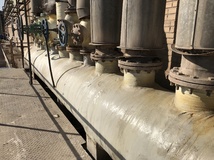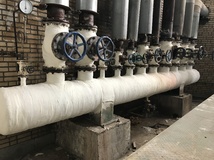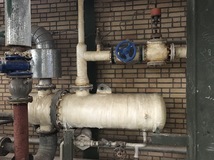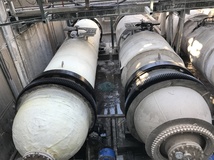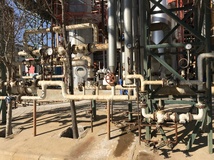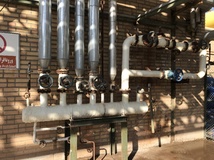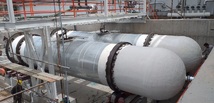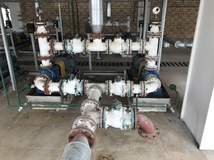Heat insulation of industrial equipment
In industrial production and in the energy sector there are many types of equipment, work surfaces of which need additional thermal insulation materials to ensure operation requirements:
- Heating equipment (turbines, boilers, heat exchangers, heaters, covers of motors, industrial heat recovery units);
- Process equipment with high surface temperatures (melting and drying furnaces, rotary drums, formators, autoclaves, units for manufacture of tires, waste heat recovery units, etc.);
- Process equipment in contact with cold liquids and gases (pumps, filters, water tanks and tanks with liquefied gas, refrigerators and freezers).
Thermal insulation works on industrial plants need to be done within the shortest possible time, preferably without stopping production.
Industrial equipment has often complicated shapes and configurations, often is located in places with difficult access. Heat insulation of all types of industrial equipment should comply with the requirements of SNiP 41-03-2003 "Thermal insulation of equipment and pipelines", providing safe working environment for personnel. Often surface of such equipment has ultra-high temperatures, suffers from high vibration and high concentration of chemically active substances.
The totality of all the requirements for industrial equipment significantly limits using traditional materials for its thermal insulation.
The main disadvantages of using thermal insulation materials (mineral wool, polystyrene) for insulation of industrial equipment:
- they lose most of their thermal insulation abilities under influence of water vapor, which requires the use of special protective coating;
- under influence of high temperatures, fastening basalt fibers, resins begin to melt, which not only causes increase in thermal conductivity of the structure, but also has a negative impact on health and well-being of people around;
- insulating panels do not provide a snug fit to the insulating surface, which leads to holes and "sagging".
- complex and expensive structures with using setting materials significantly increase weight of the equipment and can be easily damaged;
- polystyrene, foam rubber, polyurethane foam are not intended for use on high temperature surfaces (over 80-120°C).
Isollat liquid-ceramic coating is an effective solution for industrial equipment insulation.
The main advantages of Isollat coating:
- the material can be easily applied to surfaces of any shape and configuration. The coating is applied by brush, spatula or using high pressure spray painting units;
- liquid consistency of the coating allows successful insulating in limited spaces and without stopping production;
- the coating includes special anticorrosion additives;
- Isollat can be used in combination with other insulating materials (Isollat-Effect combination) that increases the range and possibilities of its application;
- it lasts long - more than 10 years;
- environmental friendliness;
- color matching is possible.
Our brands:











